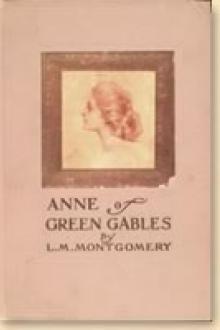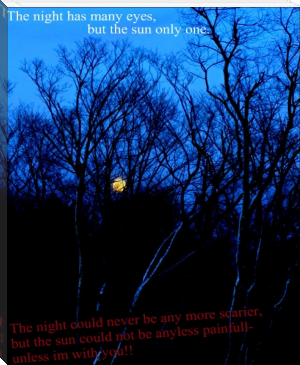A Room With A View, E. M. Forster [best mystery novels of all time txt] 📗

- Author: E. M. Forster
- Performer: -
Book online «A Room With A View, E. M. Forster [best mystery novels of all time txt] 📗». Author E. M. Forster
“And the news?” asked Miss Bartlett.
“Mrs. Vyse and her son have gone to Rome,” said Lucy, giving the news that interested her least. “Do you know the Vyses?”
“Oh, not that way back. We can never have too much of the dear Piazza Signoria.”
“They’re nice people, the Vyses. So clever—my idea of what’s really clever. Don’t you long to be in Rome?”
“I die for it!”
The Piazza Signoria is too stony to be brilliant. It has no grass, no flowers, no frescoes, no glittering walls of marble or comforting patches of ruddy brick. By an odd chance—unless we believe in a presiding genius of places—the statues that relieve its severity suggest, not the innocence of childhood, nor the glorious bewilderment of youth, but the conscious achievements of maturity. Perseus and Judith, Hercules and Thusnelda, they have done or suffered something, and though they are immortal, immortality has come to them after experience, not before. Here, not only in the solitude of Nature, might a hero meet a goddess, or a heroine a god.
“Charlotte!” cried the girl suddenly. “Here’s an idea. What if we popped off to Rome to-morrow—straight to the Vyses’ hotel? For I do know what I want. I’m sick of Florence. No, you said you’d go to the ends of the earth! Do! Do!”
Miss Bartlett, with equal vivacity, replied:
“Oh, you droll person! Pray, what would become of your drive in the hills?”
They passed together through the gaunt beauty of the square, laughing over the unpractical suggestion.
Chapter VI: The Reverend Arthur Beebe, the Reverend Cuthbert Eager, Mr. Emerson, Mr. George Emerson, Miss Eleanor Lavish, Miss Charlotte Bartlett, and Miss Lucy Honeychurch Drive Out in Carriages to See a View; Italians Drive Them.
It was Phaethon who drove them to Fiesole that memorable day, a youth all irresponsibility and fire, recklessly urging his master’s horses up the stony hill. Mr. Beebe recognized him at once. Neither the Ages of Faith nor the Age of Doubt had touched him; he was Phaethon in Tuscany driving a cab. And it was Persephone whom he asked leave to pick up on the way, saying that she was his sister—Persephone, tall and slender and pale, returning with the Spring to her mother’s cottage, and still shading her eyes from the unaccustomed light. To her Mr. Eager objected, saying that here was the thin edge of the wedge, and one must guard against imposition. But the ladies interceded, and when it had been made clear that it was a very great favour, the goddess was allowed to mount beside the god.
Phaethon at once slipped the left rein over her head, thus enabling himself to drive with his arm round her waist. She did not mind. Mr. Eager, who sat with his back to the horses, saw nothing of the indecorous proceeding, and continued his conversation with Lucy. The other two occupants of the carriage were old Mr. Emerson and Miss Lavish. For a dreadful thing had happened: Mr. Beebe, without consulting Mr. Eager, had doubled the size of the party. And though Miss Bartlett and Miss Lavish had planned all the morning how the people were to sit, at the critical moment when the carriages came round they lost their heads, and Miss Lavish got in with Lucy, while Miss Bartlett, with George Emerson and Mr. Beebe, followed on behind.
It was hard on the poor chaplain to have his partie carree thus transformed. Tea at a Renaissance villa, if he had ever meditated it, was now impossible. Lucy and Miss Bartlett had a certain style about them, and Mr. Beebe, though unreliable, was a man of parts. But a shoddy lady writer and a journalist who had murdered his wife in the sight of God—they should enter no villa at his introduction.
Lucy, elegantly dressed in white, sat erect and nervous amid these explosive ingredients, attentive to Mr. Eager, repressive towards Miss Lavish, watchful of old Mr. Emerson, hitherto fortunately asleep, thanks to a heavy lunch and the drowsy atmosphere of Spring. She looked on the expedition as the work of Fate. But for it she would have avoided George Emerson successfully. In an open manner he had shown that he wished to continue their intimacy. She had refused, not because she disliked him, but because she did not know what had happened, and suspected that he did know. And this frightened her.
For the real event—whatever it was—had taken place, not in the Loggia, but by the river. To behave wildly at the sight of death is pardonable. But to discuss it afterwards, to pass from discussion into silence, and through silence into sympathy, that is an error, not of a startled emotion, but of the whole fabric. There was really something blameworthy (she thought) in their joint contemplation of the shadowy stream, in the common impulse which had turned them to the house without the passing of a look or word. This sense of wickedness had been slight at first. She had nearly joined the party to the Torre del Gallo. But each time that she avoided George it became more imperative that she should avoid him again. And now celestial irony, working through her cousin and two clergymen, did not suffer her to leave Florence till she had made this expedition with him through the hills.
Meanwhile Mr. Eager held her in civil converse; their little tiff was over.
“So, Miss Honeychurch, you are travelling? As a student of art?”
“Oh, dear me, no—oh, no!”
“Perhaps as a student of human nature,” interposed Miss Lavish, “like myself?”
“Oh, no. I am here as a tourist.”
“Oh, indeed,” said Mr. Eager. “Are you indeed? If you will not think me rude, we residents sometimes pity you poor tourists not a little—handed about like a parcel of goods from Venice to Florence, from Florence to Rome, living herded together in pensions or hotels, quite unconscious of anything that is outside Baedeker, their one anxiety to get ‘done’ or ‘through’ and go on somewhere else. The result is, they mix up towns, rivers, palaces in one inextricable whirl. You know the American girl in Punch who says: ‘Say, poppa, what did we see at Rome?’ And the father replies: ‘Why, guess Rome was the place where we saw the yaller dog.’ There’s travelling for you. Ha! ha! ha!”
“I quite agree,” said Miss Lavish, who had several times tried to interrupt his mordant wit. “The narrowness and superficiality of the Anglo-Saxon tourist is nothing less than a menace.”
“Quite so. Now, the English colony at Florence, Miss Honeychurch —and it is of considerable size, though, of course, not all equally—a few are here for trade, for example. But the greater part are students. Lady Helen Laverstock is at present busy over Fra Angelico. I mention her name because we are passing her villa on the left. No, you can only see it if you stand—no, do not stand; you will fall. She is very proud of that thick hedge. Inside, perfect seclusion. One might have gone back six hundred years. Some critics believe that her garden was the scene of The Decameron, which lends it an additional interest, does it not?”
“It does indeed!” cried Miss Lavish. “Tell me, where do they place the scene of that wonderful seventh day?”
But Mr. Eager proceeded to tell Miss Honeychurch that on the right lived Mr. Someone Something, an American of the best type —so rare!—and that the Somebody Elses were farther down the hill. “Doubtless you know her monographs in the series of ‘Mediaeval Byways’? He is working at Gemistus Pletho. Sometimes as I take tea in their beautiful grounds I hear, over the wall, the electric tram squealing up the new road with its loads of hot, dusty, unintelligent tourists who are going to ‘do’ Fiesole in an hour in order that they may say they have been there, and I think—think—I think how little they think what lies so near them.”
During this speech the two figures on the box were sporting with each other disgracefully. Lucy had a spasm of envy. Granted that they wished to misbehave, it was pleasant for them to be able to do so. They were probably the only people enjoying the expedition. The carriage swept with agonizing jolts up through the Piazza of Fiesole and into the Settignano road.
“Piano! piano!” said Mr. Eager, elegantly waving his hand over his head.
“Va bene, signore, va bene, va bene,” crooned the driver, and whipped his horses up again.
Now Mr. Eager and Miss Lavish began to talk against each other on the subject of Alessio Baldovinetti. Was he a cause of the Renaissance, or was he one of its manifestations? The other carriage was left behind. As the pace increased to a gallop the large, slumbering form of Mr. Emerson was thrown against the chaplain with the regularity of a machine.
“Piano! piano!” said he, with a martyred look at Lucy.
An extra lurch made him turn angrily in his seat. Phaethon, who for some time had been endeavouring to kiss Persephone, had just succeeded.
A little scene ensued, which, as Miss Bartlett said afterwards, was most unpleasant. The horses were stopped, the lovers were ordered to disentangle themselves, the boy was to lose his pourboire, the girl was immediately to get down.
“She is my sister,” said he, turning round on them with piteous eyes.
Mr. Eager took the trouble to tell him that he was a liar.
Phaethon hung down his head, not at the matter of the accusation, but at its manner. At this point Mr. Emerson, whom the shock of stopping had awoke, declared that the lovers must on no account be separated, and patted them on the back to signify his approval. And Miss Lavish, though unwilling to ally him, felt bound to support the cause of Bohemianism.
“Most certainly I would let them be,” she cried. “But I dare say I shall receive scant support. I have always flown in the face of the conventions all my life. This is what I call an adventure.”
“We must not submit,” said Mr. Eager. “I knew he was trying it on. He is treating us as if we were a party of Cook’s tourists.”
“Surely no!” said Miss Lavish, her ardour visibly decreasing.
The other carriage had drawn up behind, and sensible Mr. Beebe called out that after this warning the couple would be sure to behave themselves properly.
“Leave them alone,” Mr. Emerson begged the chaplain, of whom he stood in no awe. “Do we find happiness so often that we should turn it off the box when it happens to sit there? To be driven by lovers— A king might envy us, and if we part them it’s more like sacrilege than anything I know.”
Here the voice of Miss Bartlett was heard saying that a crowd had begun to collect.
Mr. Eager, who suffered from an over-fluent tongue rather than a resolute will, was determined to make himself heard. He addressed the driver again. Italian in the mouth of Italians is a deep-voiced stream, with unexpected cataracts and boulders to preserve it from monotony. In Mr. Eager’s mouth it resembled nothing so much as an acid whistling fountain which played ever higher and higher, and quicker and quicker, and more and more shrilly, till abruptly it was turned off with a click.
“Signorina!” said





Comments (0)